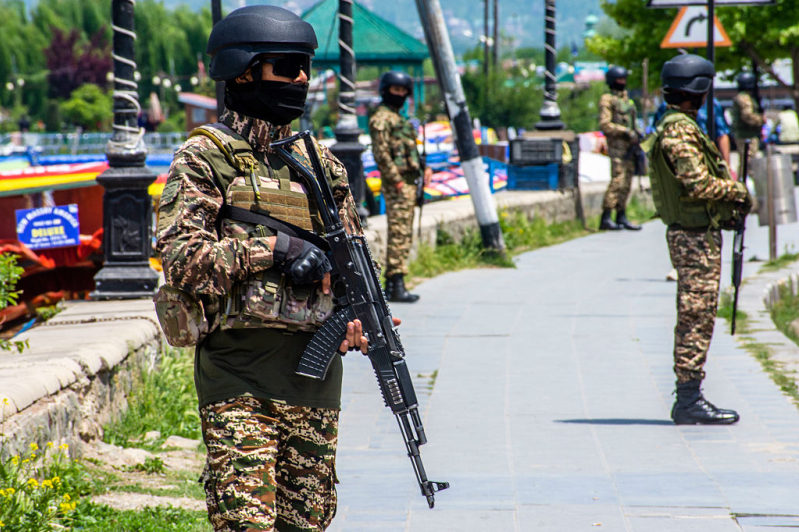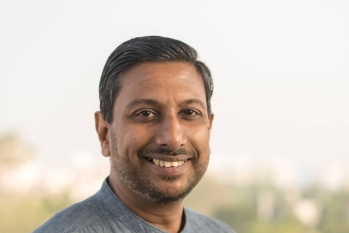
A senior bishop has urged Christians in Pakistan and India to jointly hold a day of fasting and prayer on May 5, as tensions escalate between the nuclear-armed neighbors following a deadly April 22 terror attack in Indian-administered Kashmir that killed 26 tourists.
Bishop Nadeem Kamran, head of the Anglican Church of Pakistan’s Diocese of Lahore, said the church is always at the service of humanity and will continue to advocate for peace and reconciliation between the two countries.
“As the fear of war looms over the subcontinent, I ask all Christians in the two countries to observe May 5 as a day of prayer and fasting for peace in the region,” he told Christian Daily International.
Urging the governments of Pakistan and India to de-escalate the situation through dialogue, Kamran said all issues could be resolved peacefully.
“The church condemns terrorism in all its forms and manifestations. The scourge of terrorism has affected our region for decades, and it is in the best interest of the peoples of both countries that their governments sit together and evolve a joint strategy to counter this menace instead of resorting to war. War will only bring more destruction and bloodshed, which neither country can afford,” he said.
Tensions have intensified since India accused Pakistan of sponsoring cross-border terrorism in connection with the April attack. In response, India closed its border and suspended the 1960 Indus Waters Treaty, a key UN-sponsored agreement on river water sharing, among other diplomatic actions.
Pakistan has responded with similar diplomatic measures, while political leaders on both sides have made jingoistic statements, further inflaming the situation.
The Rev. Reuben Qamar, moderator of the Presbyterian Church of Pakistan, endorsed Kamran’s appeal for a joint day of fasting and prayer, calling on Christians to seek God’s intervention in a crisis likely to impact more than 1 billion people in the two countries.
The combined population of India and Pakistan is estimated to be about 1.69 billion as of 2025, with India at approximately 1.44 billion and Pakistan at around 254 million, according to Worldometer.
“Pakistan and India should find a diplomatic solution to this crisis. By announcing the suspension of the Indus Waters Treaty, a six-decade-old UN-sponsored agreement, India has posed a serious threat to Pakistan’s water security. It’s a matter of life and death for millions of people in Pakistan! If India doesn’t reconsider its harsh stance, it could lead to very violent consequences, the ultimate sufferers of which will be the people of both countries,” Qamar told Christian Daily International.
Emphasizing the need for peace, Qamar added that fanning war hysteria and allowing current tensions to escalate into military conflict would be disastrous for the people of both nations.
Ejaz Alam Augustine, a Christian lawmaker in the Punjab Provincial Assembly, said that while Pakistani Christians stand firmly behind the armed forces, the minority community would continue to pray and advocate for peace between the rival nations.
“War is not a solution to any problem. Pakistan has offered its complete cooperation to any impartial investigation into the Pehalgam terror attack. Instead of caving in to jingoistic calls from India’s right-wing elements, the Indian government should accept Pakistan’s offer to jointly trace and punish the perpetrators of this heinous crime,” said Augustine.
The lawmaker, who previously served as provincial minister for human rights and minorities affairs, expressed his support for Kamran’s call for a day of prayer and fasting.
“All four Christian lawmakers in the Punjab Assembly support the bishop’s appeal for May 5, and urge our brothers and sisters in both Pakistan and India to join hands for peace and reconciliation in the region,” he said.
Kashmir, which both India and Pakistan claim in full but administer in part, has been a flashpoint between the two countries since partition in 1947.
Indian-administered Kashmir has experienced a violent insurgency against Indian rule since 1989, with militants targeting security forces and civilians. New Delhi claims the insurgency is backed by Pakistan, a charge Islamabad denies.






